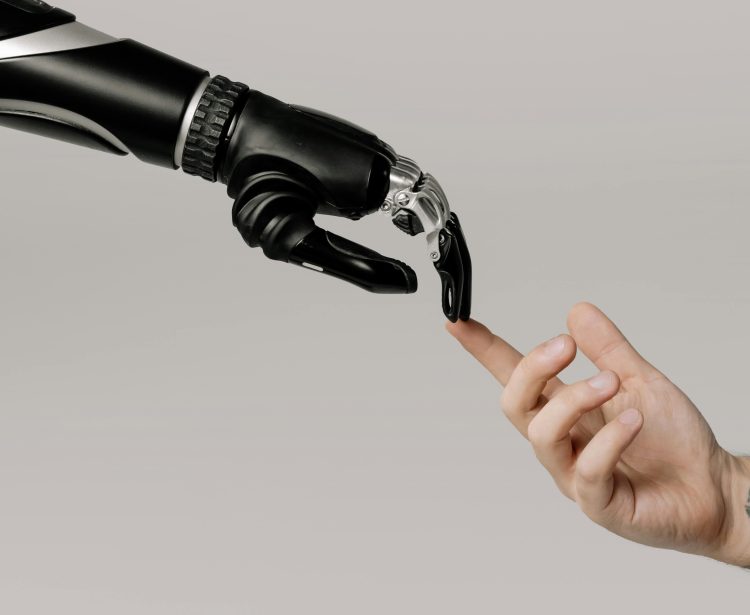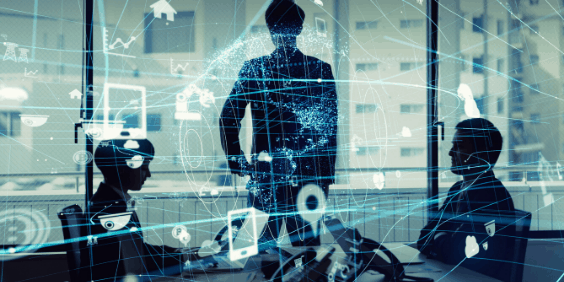Noteworthy concerns: Discussing the risks of AI note-taking apps

Note-taking applications powered by artificial intelligence (“AI note-taking apps”) are growing in popularity as a handy way to record virtual conversations without the need to hastily jot details manually.
These apps, such as Fireflies.ai, Otter.ai and Fathom, typically provide real-time transcription, audio recording and post-meeting summaries during meetings on Zoom, Microsoft Teams and similar platforms. AI note-taking apps can, among other benefits, save time, limit the need to multi-task and make it easier to focus on the conversation (isn’t that usually what a meeting is for, anyway?).
However, AI note-taking apps are not perfect and there are certain pitfalls that lawyers and their clients should consider before using them to record privileged discussions. In this article, we discuss some of these problems and suggest practical tips to consider when choosing whether to rely on AI note-taking apps in virtual meetings.
Key issues
1. Solicitor-client privilege
Lawyers and clients should be aware that AI note-taking apps may lead to accidental waivers of solicitor-client privilege.
Privilege is a right that allows clients to divulge information to their lawyer freely, with the understanding that discussions will remain private between the two of them. Generally, a communication is protected by privilege if the parties: (i) intend that the communication remain confidential; and (ii) take reasonable steps to keep it confidential. However, privilege can be waived by a client deliberately or inadvertently if they disclose privileged information to a third party, such as a friend, colleague or opposing party in a negotiation or business dealing.
Currently, it is unclear whether enlisting the help of an AI note-taking app to record and transcribe a privileged conversation is the same as disclosing the information to a third party.
In June 2023, the Manitoba Court of King’s Bench issued a practice direction on the use of AI, but it did not address use cases beyond court submissions (i.e. AI note-taking apps).
On one hand, AI is non-sentient technology and cannot understand and interpret privileged information the same way a human would; on the other hand, AI note-taking apps can retain privileged recordings and transcriptions on an external server (i.e. “in the cloud”) and subsequently process that information just like any other third party. This raises a key question: once retained and processed on an external server, do communications remain privileged?
Pending further guidance from the courts on this issue, it may be best to “play it safe” and assume that allowing AI note-taking apps to record and transcribe conversations may lead to a waiver of solicitor-client privilege. This is particularly the case in communications captured between a client and their legal counsel which are intended to be privileged but are then shared with all those participating in the call by means of a transcript or recording circulated to attendees by the AI note-taking app.
2. Privacy
AI note-taking apps also raise certain privacy concerns. For example, recordings, transcriptions and other data stored in the cloud may be vulnerable to “leaks” if they are not protected adequately with encryption and other security measures.
However, even with proper security measures in place, data collected by an AI note-taking app can be inadvertently sent to certain parties. This could occur either due to a technical errors with the AI note-taking app or human misconfigurations via the app’s settings. The unfortunate result could be that confidential or sensitive information becomes available to parties that should not have access to such information (e.g. opposing parties or counsel). Such an accident may not only prejudice a client’s position, but lead to legal liability, loss of client trust and reputational consequences for the parties involved.
Also important to consider, AI note-taking apps (and other AI services for that matter) do not guarantee a non-zero risk of loss or damage of data they store. Generally, the companies behind these apps will disclaim liability for loss or harm resulting from any use of their services, including use that is compliant with said company’s Terms of Service and other legal documentation. For example, Fireflies’ Terms of Services state:
“For certain services, Fireflies may employ Artificial Intelligence (AI) or other similar technologies, which may include the processing of user data. Fireflies will take reasonable means to preserve the privacy and security of such data, but Fireflies is not liable for any loss or harm resulting from the user’s use of AI or similar technologies.”
Disclaimers like these highlight the ever-present privacy risk associated with using AI and suggest that lawyers and clients should think critically before inviting AI note-taking apps into the meeting room with them.
3. Accuracy and reliability
While AI note-taking apps can capture important details about strategies and next steps, they can include “junk details,” make mistakes and hallucinate.
- Junk details: AI note-taking apps likely won’t know the difference in importance between a discussion about a client’s estate planning needs and introductory small-talk about barbecue plans for the upcoming weekend. Such apps will record it all, leaving the app user responsible for backtracking through the transcript and removing any immaterial chit-chat.
- Mistakes: AI-notetaking apps, like humans, can mishear and record things incorrectly. Instead of writing “inaudible” in the transcription when they cannot understand what was said, these apps will often “fill in the blank” with their best guess, which is not always correct. Similarly, AI note-taking apps may fail to include important details if they do not hear what a meeting participant says or may altogether make mistakes in transcribing or capturing what was said.
- Hallucinations: AI-notetaking apps, like other AI tools, can “hallucinate” – creating details that are exaggerations, untrue or were never said during the meeting. For example, in a recent experience with an AI note-taking app, a summary of “action items” at the end of the meeting included “scheduling a meeting with the Prime Minister” when the AI imported non-existent details stemming from small talk at the beginning of the meeting about the upcoming federal election to turn that into a takeaway action item for one of the parties.
Practical tips
For these reasons, clients and lawyers should be cautious about the use of AI note-taking apps in during meetings. While navigating these emerging problems can be challenging, here are some practical tips that may help mitigate risk:
- Choose a different method: All note-taking systems have their pros and cons, but choosing a different note-taking system can avoid some of the problems noted above. Instead of relying on an AI note-taking app, handwritten or typed notes may provide greater control over access to recorded information and perhaps improve accuracy of the notes.
- Read the fine print: While not always exciting, it can be a good use of time to read an AI note-taking app’s Terms of Service, Privacy Policy and similar documentation. These documents generally explain what the AI note-taking app retains about you, as a user, including your data. Such knowledge can help you make a more informed decision about whether to use the app, based on the benefits and risks involved. For example, an AI note-taking app’s Terms of Service may indicate whether you have permitted the company to use your data to train its AI models and algorithms. Such uses can be problematic where you have used an AI note-taking app to record proprietary and confidential information that was not intended to have been disclosed outside the meeting.
- Alert the participants: Make sure that all participants in a call are aware that an AI note-taking app will be used and seek their approval before enabling that functionality.
Key takeaways
Before using AI note-taking apps, it is important to think critically about potential adverse consequences on solicitor-client privilege, privacy and the reliability of resulting recordings and transcriptions.
With experience working with various clients across different sectors, the MLT Aikins technology, intellectual property and privacy team can provide the legal perspective your organization needs to understand and navigate issues related to artificial intelligence.
Note: This article is of a general nature only and is not exhaustive of all possible legal rights or remedies. In addition, laws may change over time and should be interpreted only in the context of particular circumstances such that these materials are not intended to be relied upon or taken as legal advice or opinion. Readers should consult a legal professional for specific advice in any particular situation




